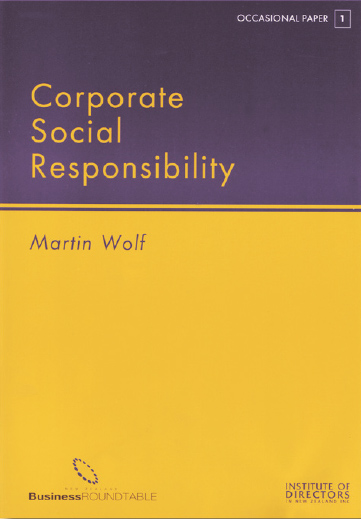Nobody would wish to defend corporate irresponsibility or suggest that businesses should behave antisocially. It is little wonder therefore that corporate social responsibility (CSR) is a popular notion. To attack it is like assailing motherhood. Yet the idea is not merely problematic but, in some respects, dangerous.
Hostility to markets is sour old wine. What changes are the bottles into which it is put. The collapse of communism destroyed the illusion that abolition of private property would create a paradise. However, this failure barely touched the enemies of the market. What it has changed is their means. Today's aim is not to eliminate private business but to transform the way it behaves. This, argued David Henderson, former chief economist of the Organisation for Economic Cooperation and Development, in a thoughtprovoking study for the New Zealand Business Roundtable and the London-based Institute of Economic Affairs, lies behind the vogue for corporate social responsibility. This increasingly accepted idea represents a response to critics, many in activist groups, who are "... with few exceptions ... hostile to, or highly critical of, multinational enterprises, capitalism, freedom of cross-border trade and capital flows and the idea of a market economy. One might expect, and indeed hope, that the business community would effectively contest such anti-business views. But ... the emphasis is on concessions and accommodation".
Mr Henderson argues that the idea of corporate social responsibility is today more than a merely defensive one. It is positive and broadly focused, amounting to a transformation of the objectives of the company and so of the market system. It is not enough, in this view, for companies to pursue profits within the constraints of law and the principles of honest dealing. Companies are seen as having a leading role as agents of social, environmental and economic progress. Business should enthusiastically embrace and adopt the notion of 'corporate citizenship'.



